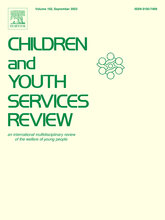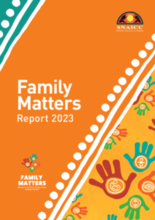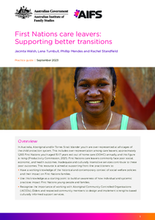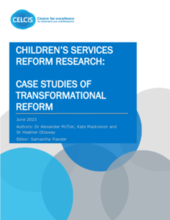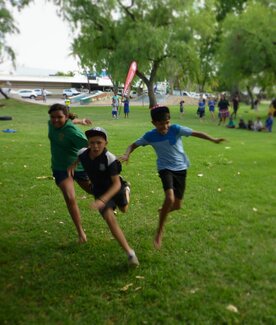

Displaying 51 - 60 of 674
This analysis considers foster care regulations in three jurisdictions in Finland, New Zealand, and Wisconsin, USA, and the effects of policy decisions on eligibility for relative caregivers and placement options for children in out-of-home care.
A new national report in Australia has found Aboriginal and Torres Strait Islander children are 10.5 times more likely to be in out-of-home care than non-Indigenous children, with its authors warning more must be done to turn the tide on current trends.
Some children in out-of-home care in Tasmania were not regularly visited by safety officers after a shift to a case management policy which violated their rights, a peak advocate says.
There was a significant, but quiet, development in Queensland this month likely to have far-reaching implications beyond the two traumatic and personal stories of child removals and hidden family histories driving it. “Child protection class action launched alleging racial discrimination,” the headline of a post on the Cairns-based Bottoms English Lawyers website read two weeks ago.
Bethan Carter, a research associate at Cardiff University, discusses the ReThink Project; a project run in collaboration with Adoption UK and Coram Voice to investigate what processes are linked to mental health and wellbeing of care-experienced young people and how they manage at two key transitions in life.
This global systematic review incorporated a comprehensive search of available literature from 1990 and captures the extant literature relating to process evaluations for interventions which address care-experienced children and young people’s mental health and well-being, and is one of the first syntheses of process evaluations in social care.
Family Matters reports focus on what the Australian government is doing to turn the tide on over-representation and outcomes for Aboriginal and Torres Strait Islander children.
This resource is aimed at supporting front-line practitioners in Australia to have a working knowledge of the historical and contemporary context of social welfare policies and their impact on First Nations families and to use this knowledge as a starting point to build an awareness of how individual and systemic practices impact First Nations young people and families.
Case studies of transformational reform programmes examined a range of approaches to the delivery of children’s services to better understand the evidence regarding systems-level integration between children’s social work/social care with health services and/or adult social care.
This Family for Every Child podcast episode explores the context for children and young people with care experience in New Zealand.

